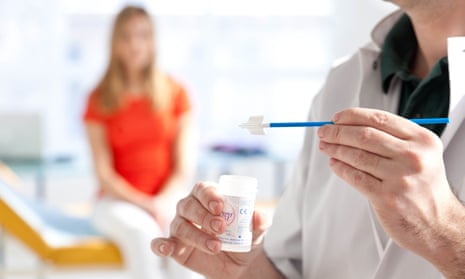“You should have been more careful,” the gynaecologist said, peeling off her blue latex gloves after I told her about my sexual assault that had happened a week ago. She was in her mid-40s, blonde bangs brushing just above her metal glasses. I was 17, feet still in their stirrups.
“I see this all the time,” she said and sighed, referring to the number of women who come through her office telling her of their histories with sexual assault.
I was shocked, maybe open-mouthed, and started to cry. I’m 17, I remember thinking, as if my youth should have granted me some maternal protection from the woman examining my body.
My mother was out of town, I was afraid to tell my friends, and I had needed this doctor to tell me that it would be OK, that this wasn’t my fault, or to at least refrain from making judgments and comments about what I should have done as if I had choice.
The gynaecologist rolled her eyes, seemingly exhausted at my naivety. “Put your clothes on and come pay,” she said before walking out of the room, leaving the door swinging.
Surviving sexual assault is difficult enough when 33% of women who are raped contemplate suicide and 13% actually attempt to take their lives according to Rainn, the largest anti-sexual violence organization in the United States. Many survivors of sexual assault experience depression, hopelessness and PTSD, and the last thing they need is to be further interrogated, shamed, or blamed for their sexual assaults by their gynaecologist, the very people entrusted with their care.
But according to a survey conducted by Women’s Health and Rainn, shaming and inappropriate comments, and even inappropriate touching (which is an entirely different story), were experienced by 27% of the 500 women surveyed.
While gynaecologists are taught to provide the best quality of care, how they choose to conduct themselves once established in their own practices is ultimately up to them. And, while patients can file a report against a doctor with their state’s medical board, many of these note that complaints cannot be related to “professionalism or bedside manner”, giving gynaecologists carte blanche to say whatever comes to mind – comments that can be more harmful to survivors than they realize.
For many sexual assault survivors, especially those who choose not to report, a gynaecologist is often the first person a survivor chooses to tell after the assault.
One woman I interviewed, who wants to remain unnamed, was 18 when she made an appointment with her gynaecologist a few months after her sexual assault. “I couldn’t tell my parents,” she says. “I grew up in a house where I was explicitly told not to socialize with boys, let alone date them or be sexually active. If my parents found out, they would kill me.”
During her appointment, she disclosed the details of her sexual assault to her gynaecologist, the first person she told, who asked her if she had been drinking that night, what part of town she had been in, and why she had been out so late – all details that were irrelevant to how she could move forward.
“I didn’t tell anyone else about the assault for years later,” she says. “At a time when I already felt hopeless, when I felt like no one would ever value me again, I needed her not to question me, but to believe and support me.”
*
There are a number of guides and peer-reviewed articles for gynaecologists on how to treat survivors of sexual assault online, but lack of information or education is not the problem. The problem is that doctors and gynaecologists are too comfortable, protected under the authority of their schooling, their pressed white coats, and can ultimately choose to say whatever they want, despite their comments being potentially harmful or deadly for sexual assault survivors who may be contemplating suicide.
No one is really doing much to stop this cycle of shaming. It’s unclear which medical schools are truly prioritizing serious education and training surrounding the treatment of survivors of sexual assault, and it feels like a moot point if gynaecologists are going to disregard that training anyway.
When we, in America, still live in a highly saturated rape culture, even talking about survivor-shaming feels like an uphill battle. But while it’s understood that gynaecologists are not expected to dual as counselors or psychologists, their choices in how they care for a patient undoubtedly play a role in the healing process of sexual assault survivors.
When every 98 seconds an American is estimated to be sexually assaulted, gynaecologists need to be proactive in ensuring that they are supporting – not shaming – survivors of sexual assault now.
